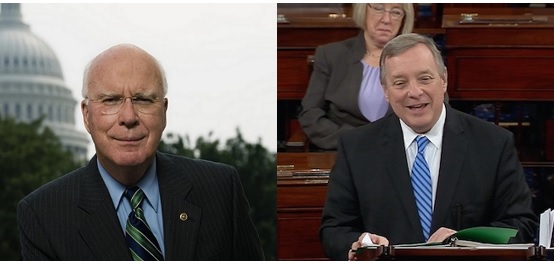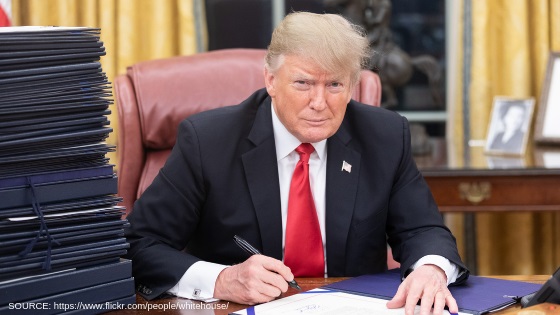
A provision in the United States Asia Reassurance Initiative Act
Sen. Bong Go should go ahead and tell President Duterte to ban American legislators who they think are “meddling” in the way they are running the country.
Speaking during the 118th Balangiga Day Commemoration in Balangiga, Eastern Samar September 28, Go said “I will suggest to President Duterte to ban American legislators from entering our country for interfering in our internal affairs. These senators think they know better than us in governing ourselves.”
Go’stirade against the American legislators was a reaction to the amendment Senators Richard Durbin and Patrick Leahy proposed, and was approved,in the Fiscal Year 2020 State and Foreign Operations Appropriations Bill which is to prohibit entry to the U.S. Philippinegovernment officials involved in the imprisonment of Sen. Leila de Limawhich they see as “politically motivated.”
The budget amendment followed the fiing of a resolution in the U.S House of Representatives condemning the Philippine government of for its continued detention of De Lima and called for her immediate release.
It is the right of every government to come up with measures which it thinks will protect the interest of the people it serves. If Go thinks it will serve the interest of Filipinos to ban those “meddling” American officials, he should advise the President to do so.
But why is Go over-reacting? Does he think he would be included among those who would be banned from going to the U.S.?
So what if he could not travel to the U.S? Would it be the end of the world for him and those who would be affected by the ban?
It is public knowledge that a number of senators have not been to the U.S. for years for one reason or another and their political careers have not been adversely affected by it. Senator Imee Marcos has not been back to the U.S after they came back from exile following the overthrow of the Marcos government in 1986. Sen. Panfilo Lacson has not been known to visit the United States for many years.
Or even Senator Ronald “Bato” de la Rosa.He didn’t travel to Las Vegas last July to watch the fight of fellow senator Manny Pacquiao against Keith Thurman at the MGM Grand Garden Arena in Las Vegas, Nevada, unlike in past fights of Pacquiao. He, instead, joined Senate President Tito Sotto and other legislators in watching the Pacquiao-Thurman fight in a mall in Metro Manila.
It would be interesting to know why de la Rosa was not able to go the U.S. for the Pacquiao-Thurman fight. Maybe he had other commitments in the country or did it have to do with the United States Asia Reassurance Initiative Act (ARIA)?
The U.S, to promote Washington’s security and other interests in the Indo-Pacific region has ARIA, signed by President Trump on Dec. 31, 2018.
It, however, imposes conditions in line with Washington’s fundamental interest in defending human rights and promoting the rule of law in the Indo-Pacific region.
The ARIA specifically states that “none of the amounts appropriated may be made available for counternarcotics assistance for the Philippine National Police unless the Secretary of State determines and reports to the appropriate committees of Congress that the Government of the Philippines has adopted and is implementing a counternarcotics strategy that is consistent with international human rights standards, including investigating and prosecuting individuals who are credibly alleged to have ordered, committed, or covered up extrajudicial killings and other gross violations of human rights in the conduct of counternarcotics operations.”
Included in sanctions for those that violates human rights, religious freedoms or engages in censorship activities, is the line “that the President should impose targeted financial penalties and visa ban sanctions.”
Visa sanction. That is what the American legislatorsare exercising in adopting an amendment to the Fiscal Year 2020 State and Foreign Operations Appropriations Bill.

